Beekeeping and Happy-Culture in West Bolton
If you’ve driven or biked through Brome-Missisquoi, admit it, you’ve never set foot in West Bolton, this (too) well-kept secret. And to hell with the easy puns: you’ll catch the bug for Apiculture WB Gold and for this non-village that is West Bolton!
We usually arrive here either by Autoroute 10 or else by Brome-Lake. Bucolic country roads, hillside landscapes, dales and beautiful homes; It feels great to get lost on the roads of this municipality which has no town centre to speak of, but nevertheless offers a dynamic lifestyle since 2016, thanks to the Collectif de Bolton-Ouest, a non-profit association of 40 farm and forest owners who work to develop their territory in a sustainable and profitable way.
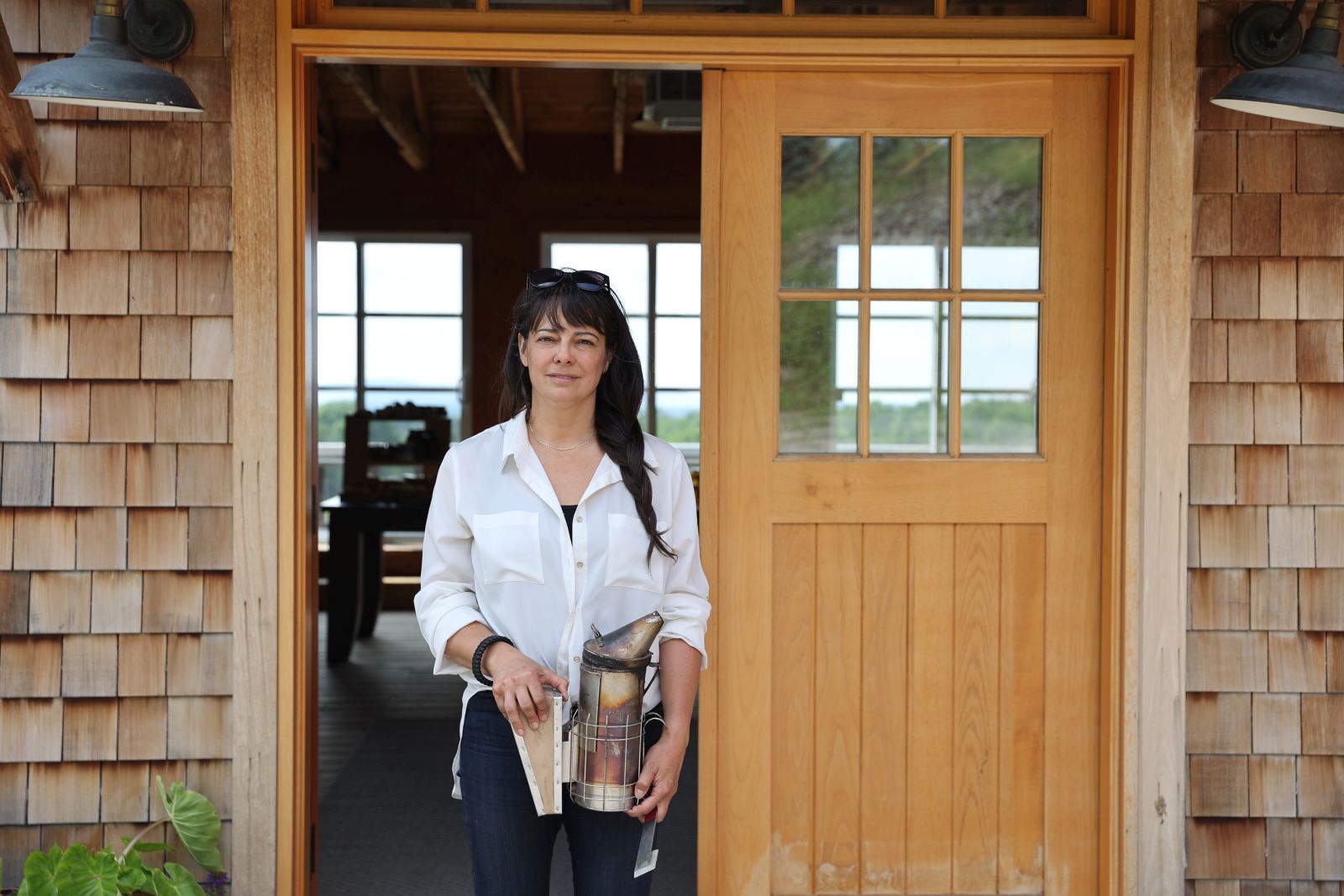
Two of them: the couple formed by Nancy Lanteigne and Syed Mohamed. Like many residents, these Montréal natives were attracted five years ago by the green environment and the fresh air, notably to raise their little Leilah. From one “breed” to another, why not bees? And Scottish long-haired Highland cows? “I wanted bison, but the former farm owner was already breeding these cows,” laughs Nancy. With the help of Lise Boucher and John Badger, both Highland cattle breeders from the same town, they learned the rudiments of these ruminants.
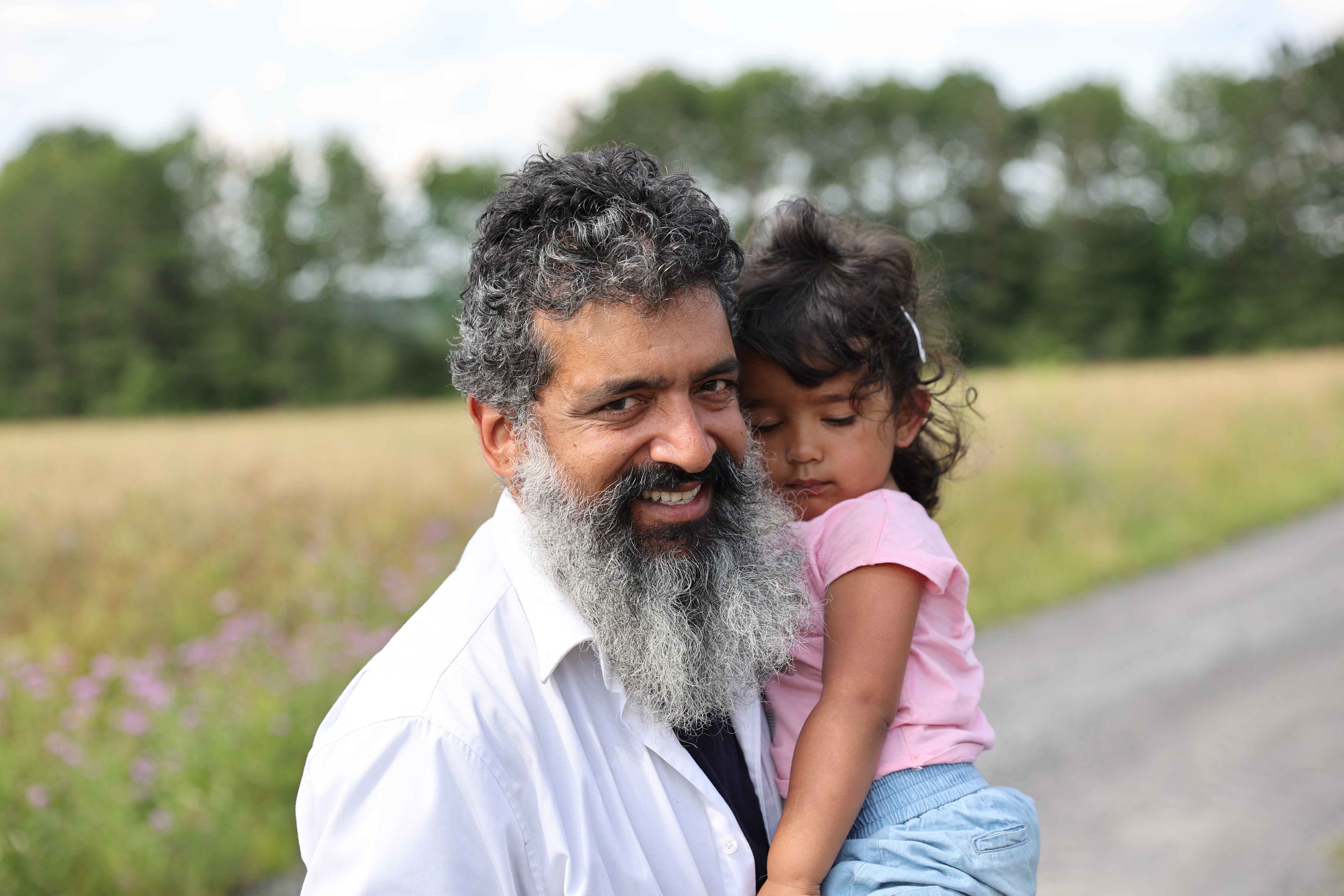
“We use the cows to regenerate the rocky soil on our 200 hectares, allowing us to produce more hay, which we sell to other producers,” says Nancy. Indeed, these bovines cannot be outdone when it comes to grazing parcels of land for two or three days before being transferred to new pastures. Their rich manure, packed with fertilizer and micro-organisms, revitalize the soil. Their herd, currently counting 17 cows, should increase to 25.
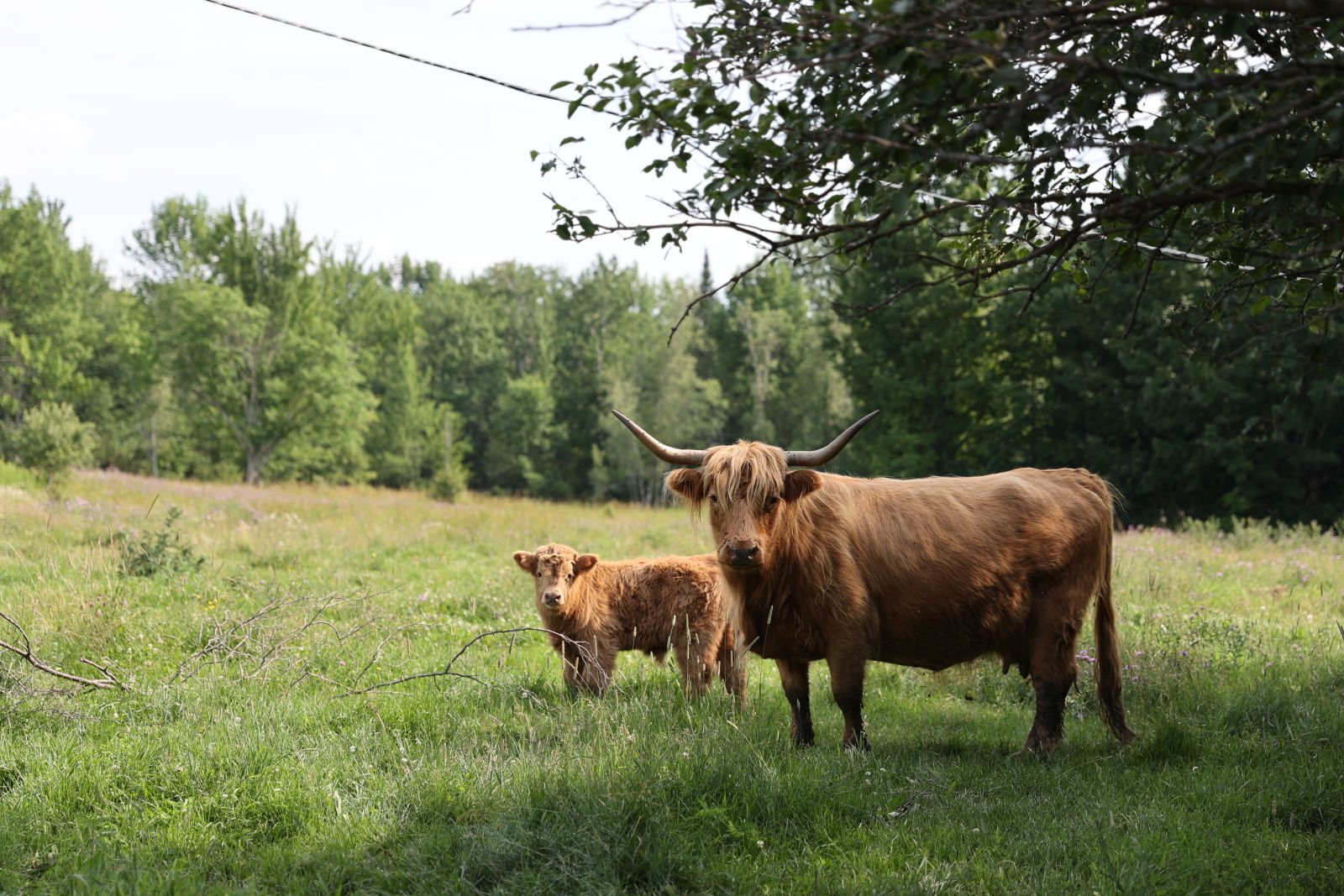
All around the fields we notice hundreds of trees and shrubs planted in 2020 and 2021, which will bloom from May to September. A well-thought-out pantry, perfect for bees, fed by hawthorn flowers, juneberry and basswood trees, species indigenous to Quebec. Multiplying the flowers is not fortuitous: with their fresh urban eyes, Syed and Nancy did not want to harm the natural pollinators or take away their food. Initially, two hives were enough, but the couple now has 40 hives spread across five sites. The farm is pre-certified organic, which is easy enough since no genetically modified corn or soybeans, which are not very melliferous, with their cocktail of pesticides, are grown on West Bolton’s natural pastures.
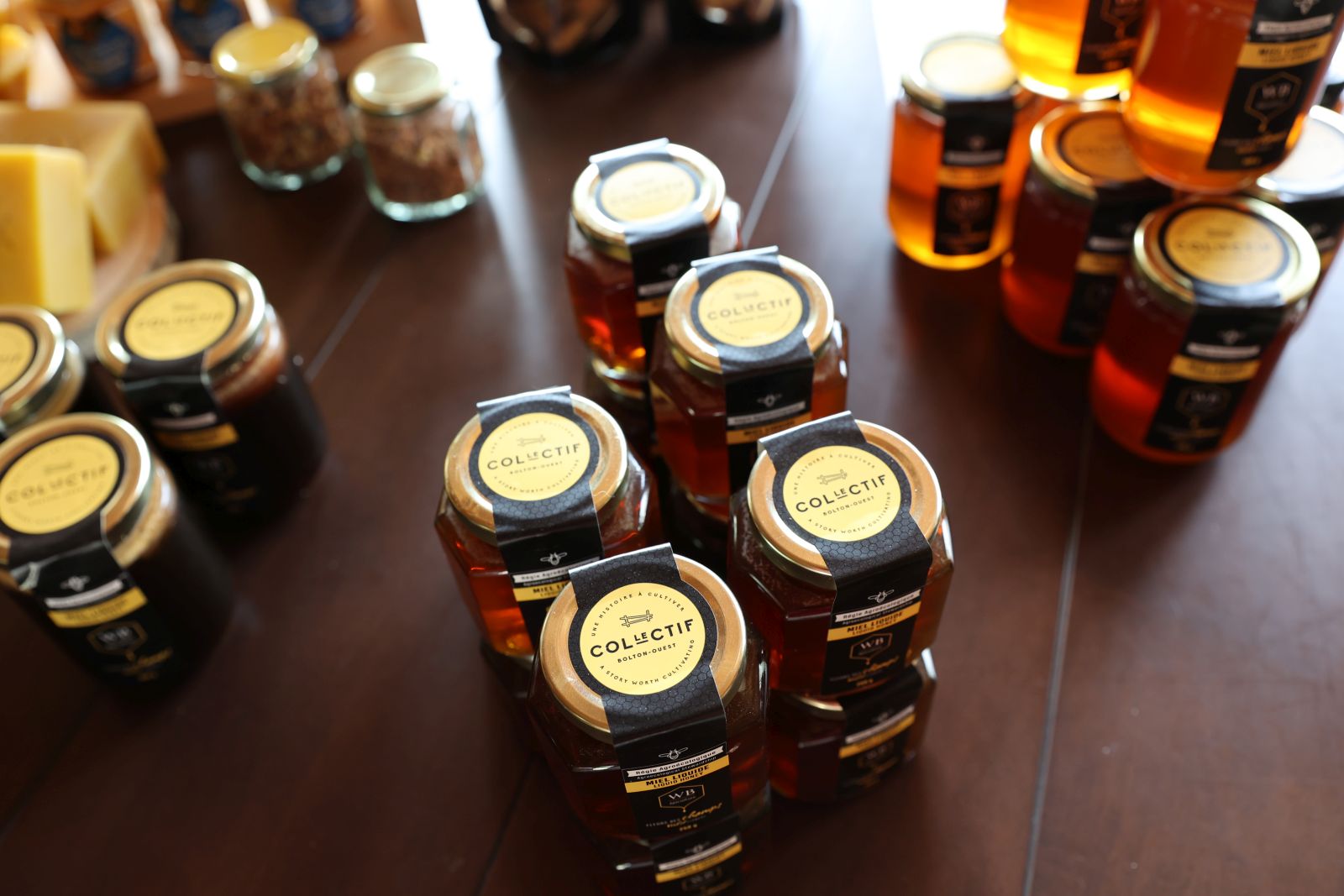
A special feature of the project is that, to ensure their colonies’ winter survival, the couple decided to leave half of their harvest to their bees. The honey that the bees produce is, after all, their food for getting through the winter. Therefore, there’s no question about feeding them sugar solutions or food supplements of any kind. To compensate for the loss of income, surplus pollen (rich in protein), propolis (a plant resin) and wax (when the honey is extracted from the cells) are harvested. All of these are valorized in processed products such as kombucha and baklava made with honey and superfoods for cyclists on the West Bolton trails…
Have you caught the bug?
Where to find these products?
At the farm, 21 chemin Stukely, West Bolton: every Saturday, 10:30 a.m. to 3:00 p.m.
The Metro grocery store in Bromont
Home Hardware in the Town of Brome Lake
The Panissimo bakery in the Town of Brome Lake
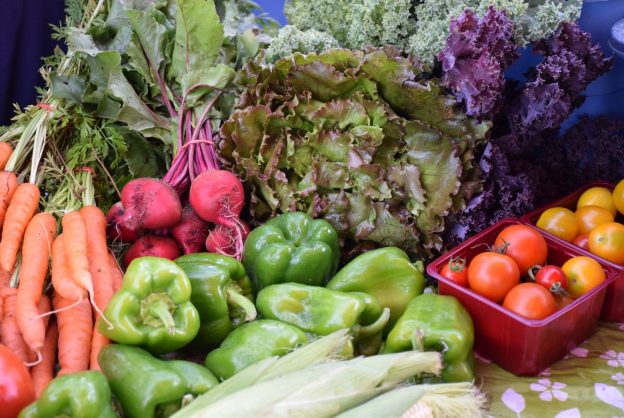
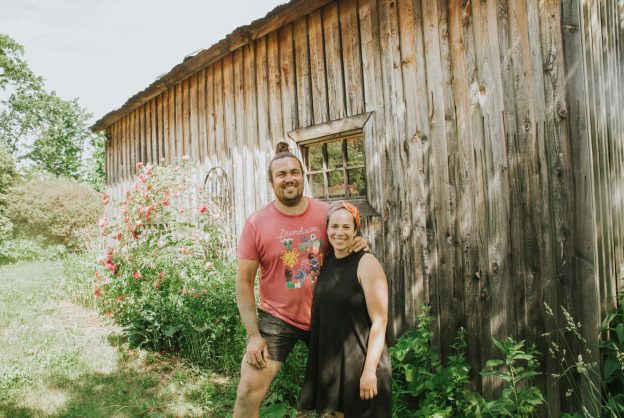
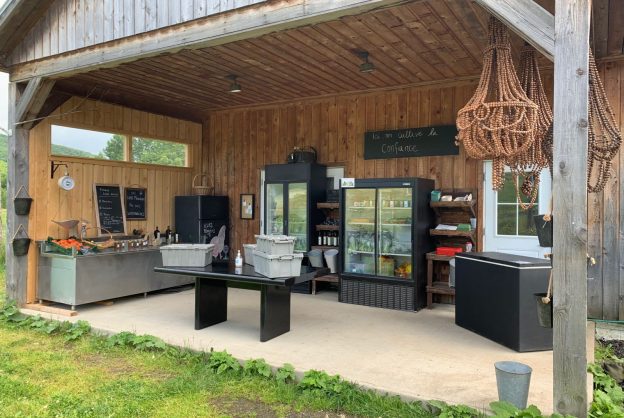

0 comments